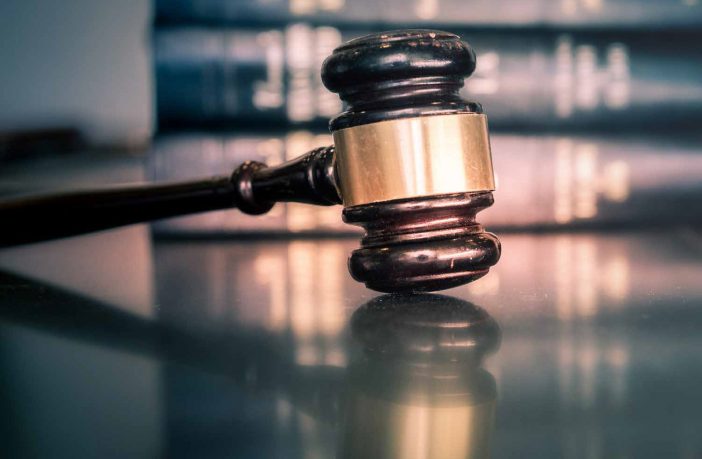Is the Curtain Falling?
By Samuel Oyombra
In the recent past, there has been a rise in the number of cases in Kenya, as well as in many other jurisdictions, where company directors and/ or officers have been arraigned in court, even convicted of offences committed by
their respective companies.
The question which often comes to mind is whether in deed it is the directors / officers, or rather the company itself, which should be the appropriate defendant or respondent in such cases. Obviously, there could be a few challenges when it comes to holding a company criminally liable in some scenarios; since the company
does not possess a mind of its own, but operates only on the basis of thoughts and minds of natural persons who run or govern it. Arguably therefore, a just regime of punishment for crimes of corporations must instead target the officers and servants of the corporations by whose consent, fault or negligence the offences have been committed or omitted (George O. Otieno, 2008).
Without attempting an exhaustive legal discourse on this subject matter, this article attempts to examine the evolving legal environment under which companies operate today, especially with respect to perhaps, the most basic principle which underpinned its formation, and the growing irrelevance of the fundamental doctrine of a ‘separate legal entity’ as originally envisaged in the formation of body corporates.
Working behind the Veil; – The Agency Theory
This theory is closely linked to the concept of a registered corporation, and with it, the establishment of a general body of agents who act on behalf of the corporation, to invest the funds supplied by others and execute daily operations of the entity.
The question which often comes to mind is whether in deed it is the directors / officers, or rather the company itself, which should be the appropriate defendant or respondent in such cases. Obviously, there could be a few challenges when it comes to holding a company criminally liable in some scenarios; since the company does not possess a mind of its own, but operates only on the basis of thoughts and minds of natural persons who run or govern it. Arguably therefore, a just regime of punishment for crimes of corporations must instead target the officers and servants of the corporations by whose consent, fault or negligence the offences have been committed or omitted (George O. Otieno, 2008)
The theory stems from the concept of stewardship, and is as old as life itself; it exists in many human relationships and even in the relationship between mankind and nature. It should be understood that servants / agents are expected to act in the best interest, in the service of their masters / principals.
Vicarious Liability and the Doctrine of Separate Legal Personality
To shield servants from legal action while serving their masters, the principle of vicarious liability was born. Founded on the rule of common sense, it refers to the legal responsibility imposed on a master/ principal for a range of omissions or wrongdoings of their servants/agents/ employees; as long as it can be proved
that the aggrieving actions or omissions took place in the course of the servant’s (agent’s/ employee’s) service/employment
Relating this to companies, upon registration, the law permits the company so registered to do all the things that an incorporated entity can do. However, given her natural inability to think or act by herself, the registered entity can only do business through agents and/or servants/ officers/ employees who would be presumed to be acting on its behalf.
When, in the course of acting for it, such an agent/ servant/ employee causes an injury/damage or other loss to a third party, the party so injured would be able to seek compensation from the employing company, being the principal, and not from the servant/ agent, as long as it can be established that the servant/ agent
was acting in the course of, or within the scope and authority of the employment relationship. It is on this same understanding that the Companies Act originally sought to shield a company’s directors from any personal liabilities which could arise from any legal actions instituted against them individually for any grievances
caused by their actions or omissions in the service to their respective companies. Such, was the rule upheld in Salomon v A Salomon & Co Ltd. [1896] UKHL 1,
[1897] AC 22 as explained hereunder.
The Veil Strengthened in the Case of Salomon v A Salomon & Co Ltd (1896)
As such, the House of Lords upheld that the company (and not the individual director) was liable for the obligations arising from the offending actions done in the name of the company.
However, over the years, there has been a paradigm shift, especially in light of the fight against corruption and fraud, which puts to question the continuing relevance of this celebrated doctrine. There are provisions in law and regulations which seem to threaten this original underpinning principle in corporate governance. The recent amendments to the Companies Act 2015 and the Income Tax Act in Kenya are just but some of the legislative interventions that seek to diminish the doctrine of a company’s separate legal personality.
The Companies Act and the Doctrine of Separate Legal Entity
These provisions have the effect of rendering the position held by the UK House of Lords in Salomon v A Salomon & Co Ltd as discussed above, untenable.
Tax Liability and the Principle of Separate Legal Personality
There are also provisions in the Kenyan tax laws which impose personal liability on individual officers of a body corporate with respect to tax offences committed by the body corporates for which they work.
Sec 37A of the Income Tax Act, for example, provides that, where a corporate body which is required to make
specified tax deductions fails to remit the deducted amount as required or directed by the Commissioner, then every director and every officer of the corporate body concerned with the management thereof, shall be guilty of an offence, and shall be liable to a fine of up-to two hundred thousand shillings or to imprisonment for a term not exceeding two years, or to both such fine and imprisonment.
In fact, Sec 18 of the Tax Procedures Act No 29 of 2015 goes further to impose an obligation for tax payable by a company, on a controlling shareholder (subject to specified defenses) in a situation where an arrangement has been entered into, with the intention or effect of rendering a company unable to satisfy a current or future tax liability under the law. Respecting the doctrine of separate legal personality, the company, and not the member, would have been liable in such circumstances.
Yet, just like in the case of the Companies Act cited earlier, these tax law provisions, by imposing a personal liability on specified individuals, further appear to tear away the veil that has hitherto separated a corporate body from the officers / servants who work for it.
Unclaimed Financial Assets Act and the Veil of Incorporation
The Kenya’s Unclaimed Financial Assets Act (UFAA) No. 40 of 2011 is another law that imposes individual liability on directors and officers of a company where the corporate body commits an offence under the Act.
It provides, under Sec 52, that where a body corporate commits an offence under the section, an employee, officer, director or agent of the corporation who authorizes, permits or acquiesces in the commission of the offense commits an offense and would be liable to a fine of up to one million shillings or to imprisonment for not more than one year, or to both such fine and imprisonment.
Curtain of Incorporation Pierced in the Insolvency Act No 18 of 2015
Sec 509 of the Kenya’s Insolvency Act provides for instances where a person would be held personally liable for the debts of a company. In fact, Sec 510 provides for instances where a past or present officer or member of a company in liquidation would be prosecuted for specified offences.
Granted, the law has always allowed for limited exceptions where the veil of incorporation could be lifted, but now, with emerging numerous provisions and laws expanding the exceptions, that veil appears to have become so thin and so porous that it could as well be presumed to be no longer existent.
Financial Reporting and the Veil of Incorporation
Of crucial importance for Accountants and Auditors though, is to determine whether related legal expenses as well as the fines and penalties levied on individual directors and officers of a company as discussed above, but settled by the respective company, would constitute valid expenses of that company to be reported in the statement of profit or loss; and whether it would be necessary for the auditor to consider modifying
the audit report in a situation where the board of directors approves and insists on including such legal fees, and related fines and penalties as expenses of the company.
The same challenge could also come up in the public sector, in a situation where a public servant/state officer is
individually sued and fined, for actions or omissions arising in the course of his/her service, but then the employing government entity settles those fines on behalf of their employee. Though it should be noted that the Human Resource Policies and Procedures Manual for the Public Service (Public Service Commission, 2016, pp. 157-158) provides that public officers facing criminal or civil charges in Court could be assisted in their defense by the government, there could be need for the auditor to exercise his/her professional judgment in determining whether the related legal expenses incurred by the government in this case would form part of public spending.
An auditor who fails to consider this fact, in forming an audit opinion on the financial statements of the reporting entity, which is subject to an audit, could be at a risk of issuing an inappropriate audit opinion.
Conclusion
From the foregoing, and in light of these emerging legislative developments, it is possible to start to glean a trend of actions which could end up totally removing the veil of incorporation that has hitherto separated companies
from the individuals who run or own it. The effect of these developments is that there’s now increased responsibility placed on the shoulders of the natural persons who own or run the company. As such, there is a growing occupational risk which company directors must be aware of, even as they serve, or plan to serve
in their respective boards. Worse still, even controlling shareholders of today’s companies must be alive to the fact that there could be instances where they would be called upon to defend themselves in a case where their companies are charged in court. This is a crucial risk factor which an aspiring director must be aware of, and should take into account in making the decision to accept an invitation to serve in any board of a company. The
same applies to promoters desiring to form themselves into a company.
CPA Samuel Oyombra is a Member
of the Institute of Certified Public
Accountants of Kenya




